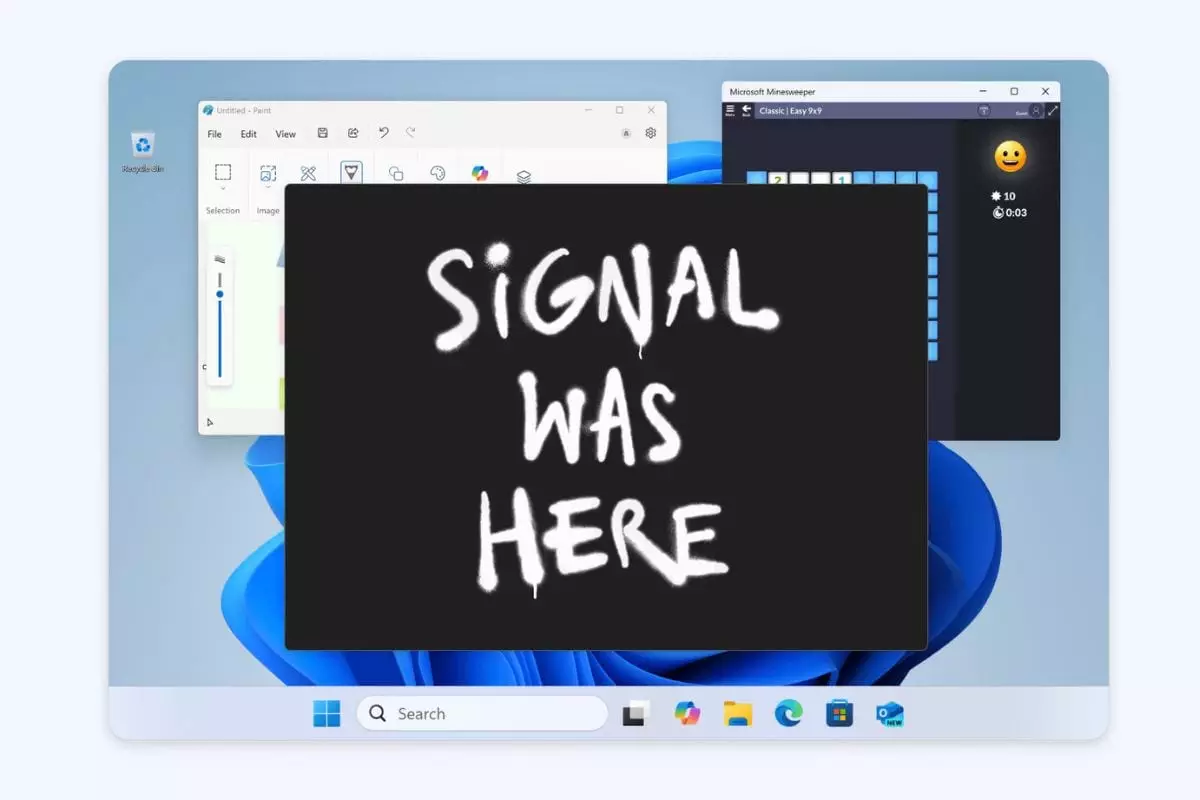In an era dominated by rapid technological advancements, privacy has become a hot topic worthy of fervent discussion. The introduction of artificial intelligence (AI) into everyday applications has further complicated this landscape, as companies struggle to balance innovation with user privacy. Recently, Signal, a messaging platform renowned for its commitment to privacy, unveiled a formidable new feature in response to Microsoft’s AI-powered Recall function. This move not only underscores Signal’s dedication to safeguarding user information but also highlights the overarching need for industry-wide standards that prioritize privacy in the face of burgeoning AI capabilities.
Signal’s Innovative Response
On a typical Wednesday in early October, Signal announced the implementation of its Screen Security feature aimed at thwarting the potential privacy invasion posed by Microsoft’s Recall tool. The Screen Security feature serves as a safeguard against unwanted screenshots taken by the operating system or other applications, essentially shutting the door on privacy invasions. While Signal touts this as a necessary response, it’s important to recognize the broader implications of such measures. The fact that a messaging application needs to resort to a workaround akin to Digital Rights Management (DRM) technologies used by platforms like Netflix indicates a severe flaw in how AI systems are being designed and regulated.
A Look at Microsoft’s Recall Feature
The Recall feature, ostensibly designed to enhance user convenience by tracking behaviors through screenshots, has drawn significant ire from privacy advocates. Launched after extensive development, it operates like a digital historian, providing users with a record of their previous activities based on continuous screen captures. While one could argue its utility, especially for those with memory difficulties, the underlying premise is troubling. A lack of privacy controls leaves users vulnerable, and even when Microsoft attempted to mitigate these concerns by making Recall opt-in rather than default-on, the fundamental issue remains: the misuse of such intrusive features poses a risk too great for many.
Signal’s Stand on Accessibility vs. Privacy
Signal’s new feature does come with its own set of challenges, notably potential accessibility issues. While the Screen Security feature aims to protect user data, it may inadvertently hinder those who rely on screen readers or magnification tools, a clear conflict between privacy and accessibility. Signal has acknowledged these ramifications and offers users the ability to disable the feature, albeit with a cautionary warning. This acknowledgment is commendable but also indicates a harsh reality: that end-users are forced to make uncomfortable choices between maintaining their privacy and ensuring their accessibility to the app’s functionalities.
The Bigger Picture: Industry Responsibility
This situation reflects a harrowing trend in the tech world: the lack of robust privacy protections and developer tools in operating systems. Signal’s empowered stance serves as a clarion call for other tech companies and developers to prioritize privacy in their products as an integral rather than an afterthought feature. The “one weird trick” approach—implementing workarounds to maintain integrity—should not be the modus operandi for any application handling sensitive data. Just as importantly, the dialogue surrounding the ethical responsibilities of AI developers must intensify, forcing them to reckon with the implications of their creations.
While Signal’s response to the challenges posed by Microsoft’s Recall tool is a significant step towards preserving user privacy, it also represents a wake-up call for the tech community at large. Developers, corporations, and policymakers must collaborate to establish foundational guidelines that uphold privacy and accessibility, ensuring that users are never left sacrificing one for the other. The fight for privacy is not merely about protective measures; it is about creating a digital landscape where innovation aligns harmoniously with human rights. Signal’s latest measure is laudable, but it is indicative of a larger battle ahead, one that all stakeholders in the tech industry must engage in.

